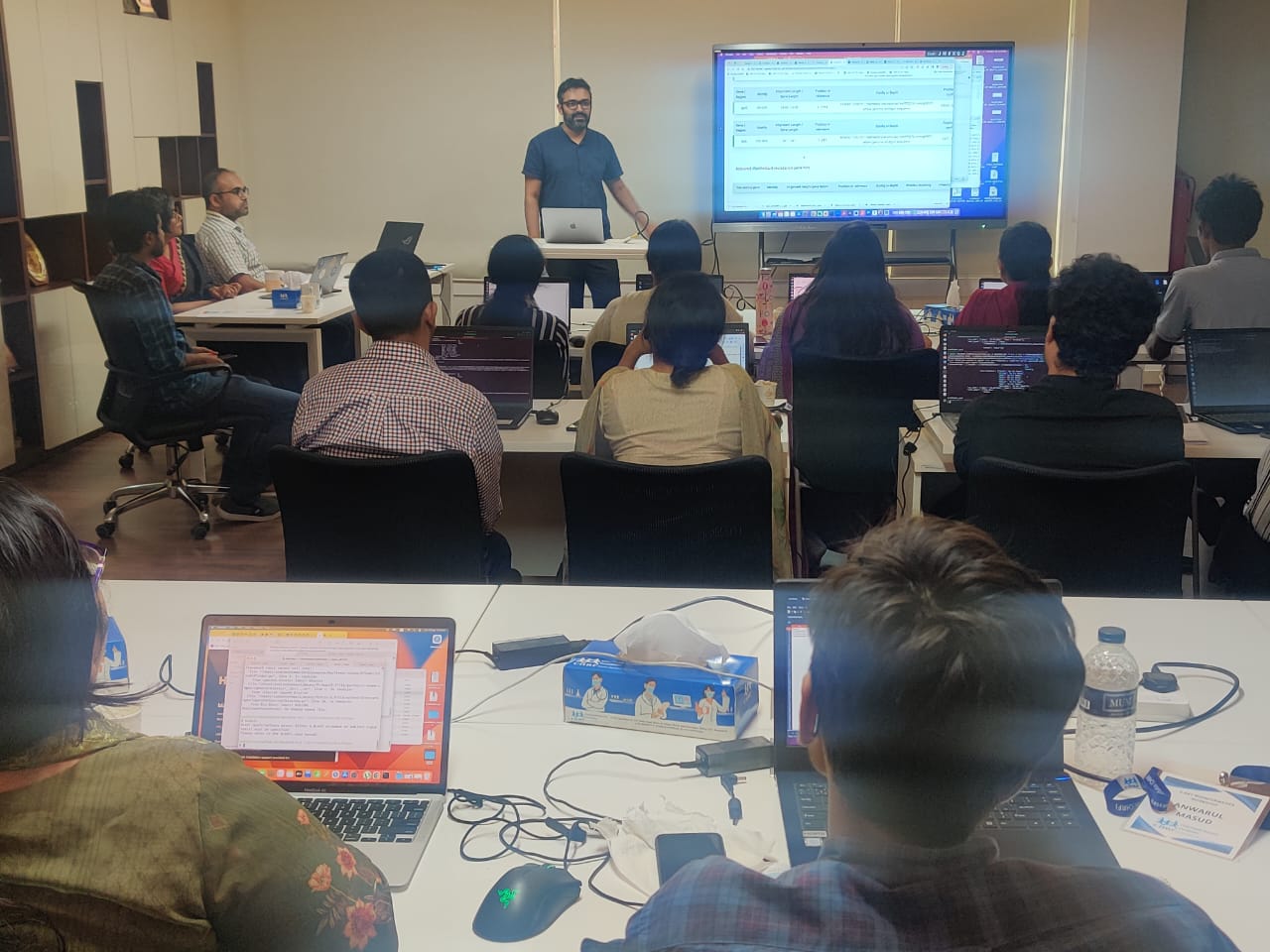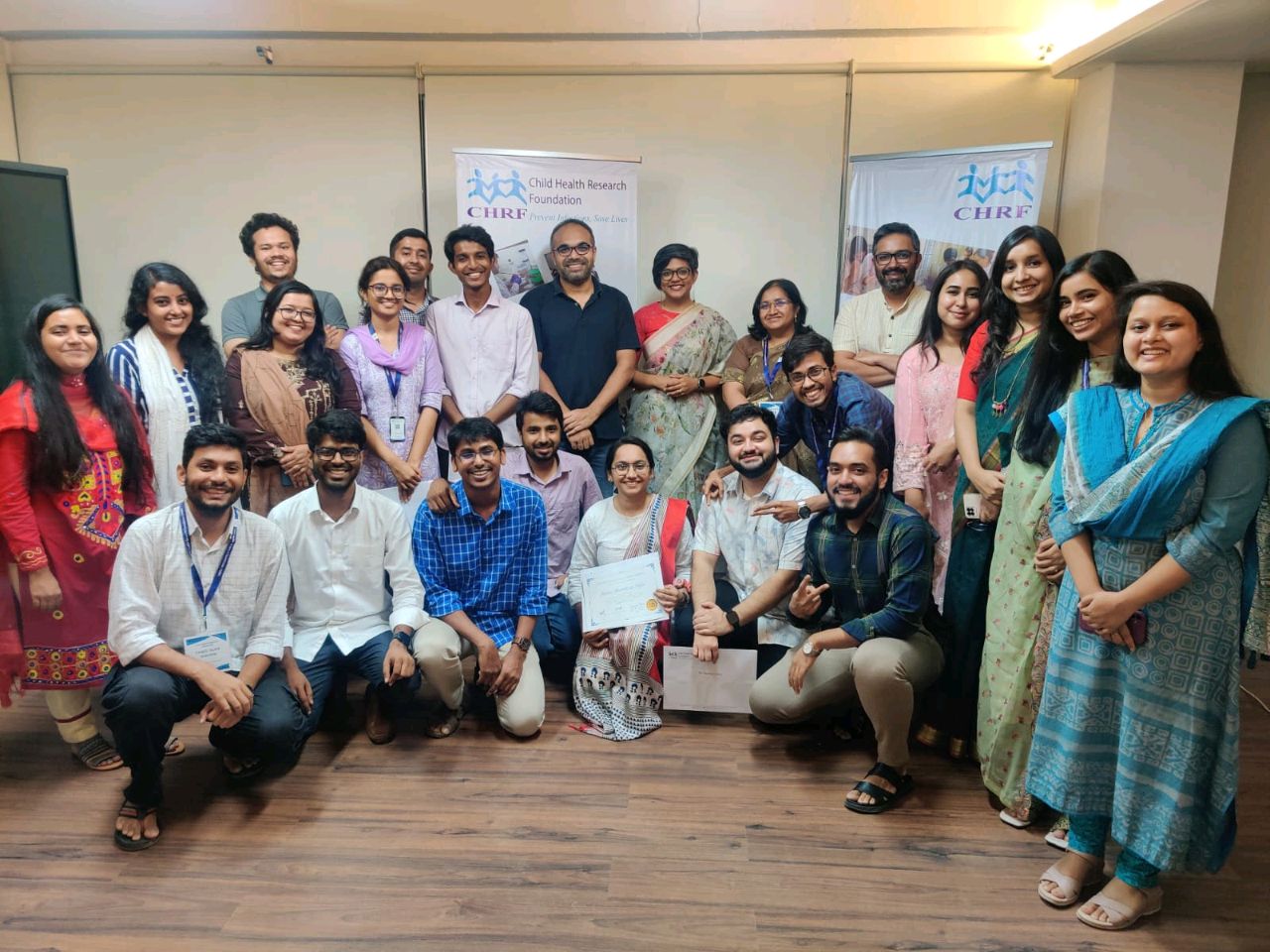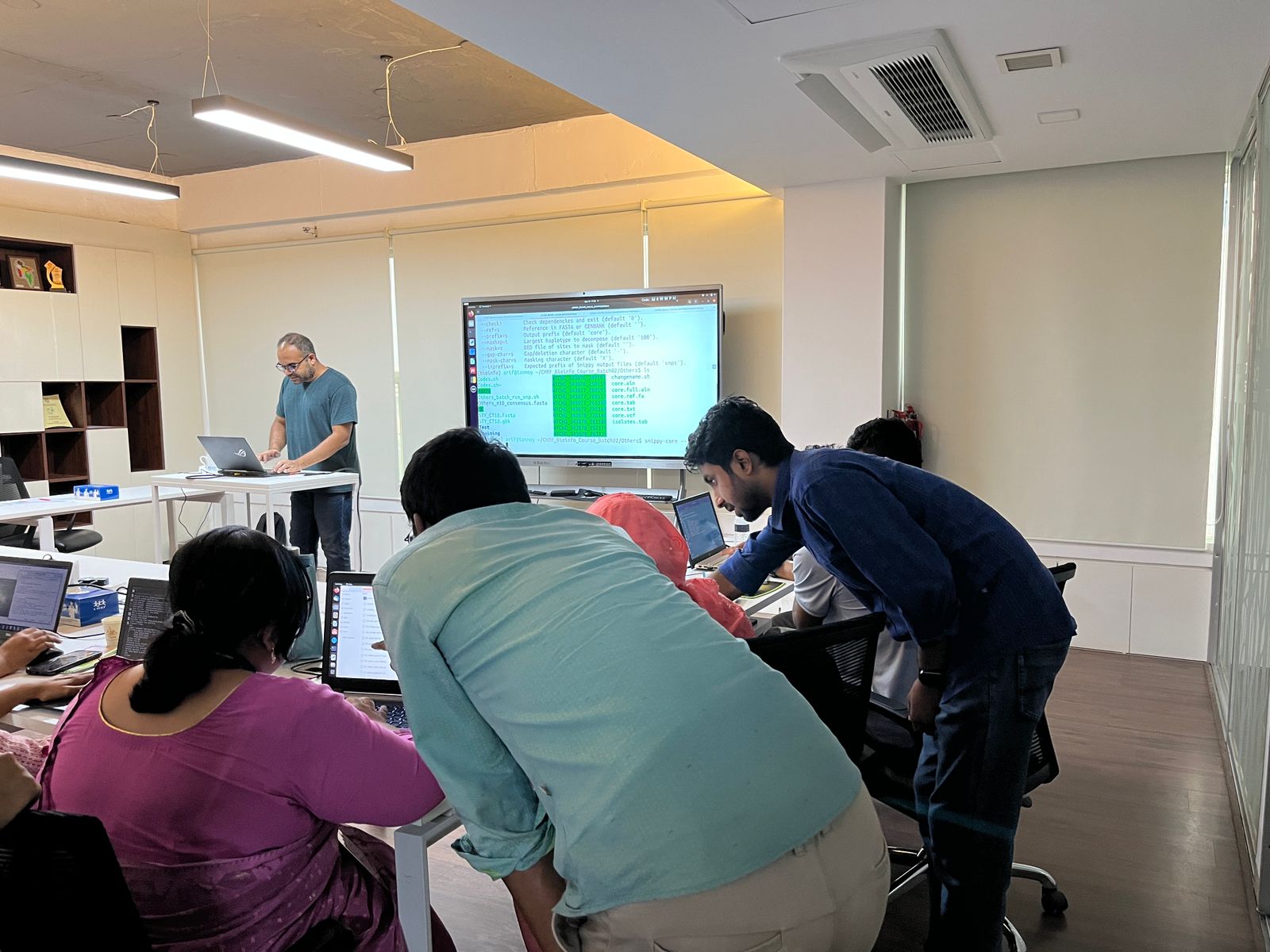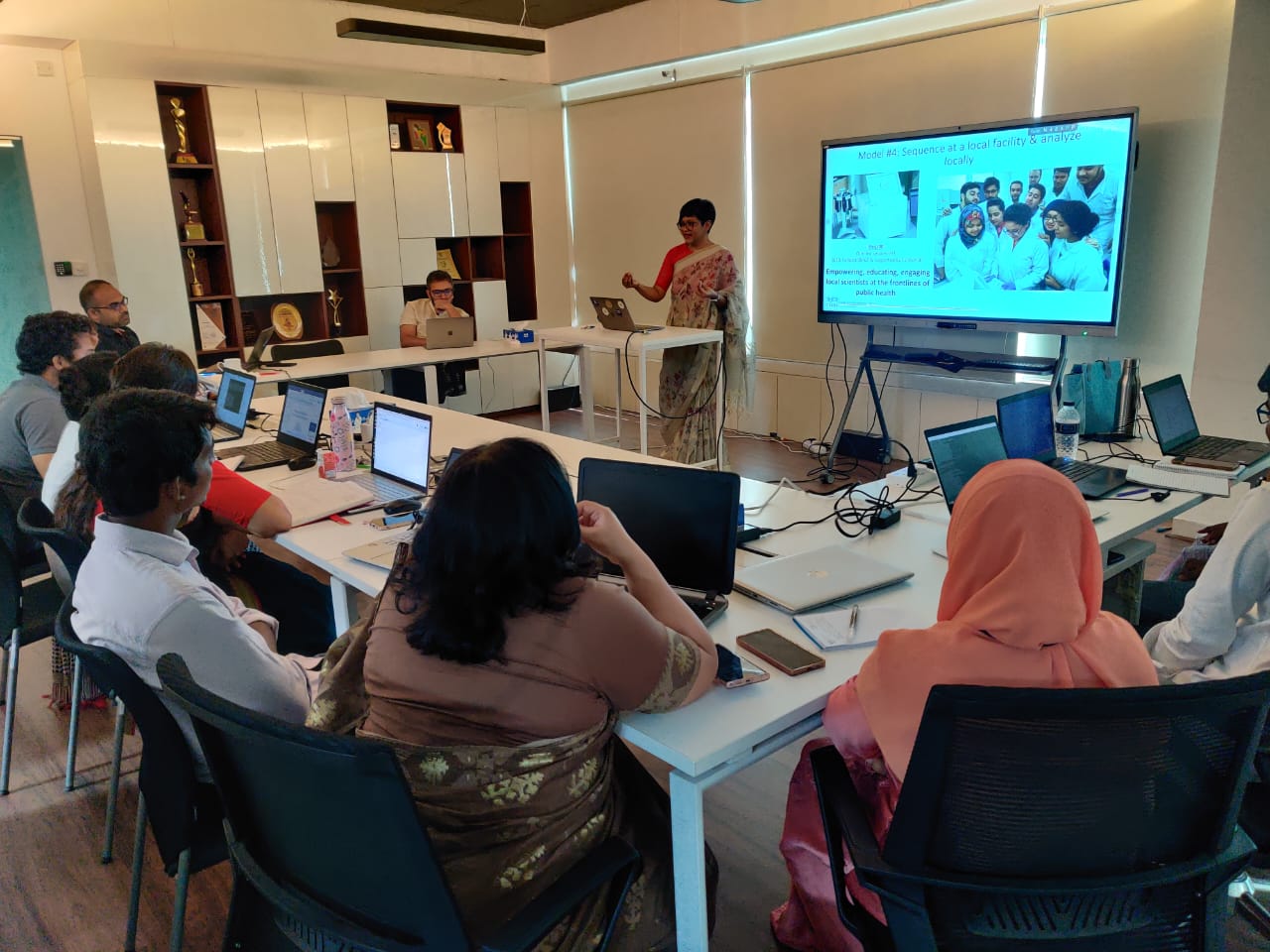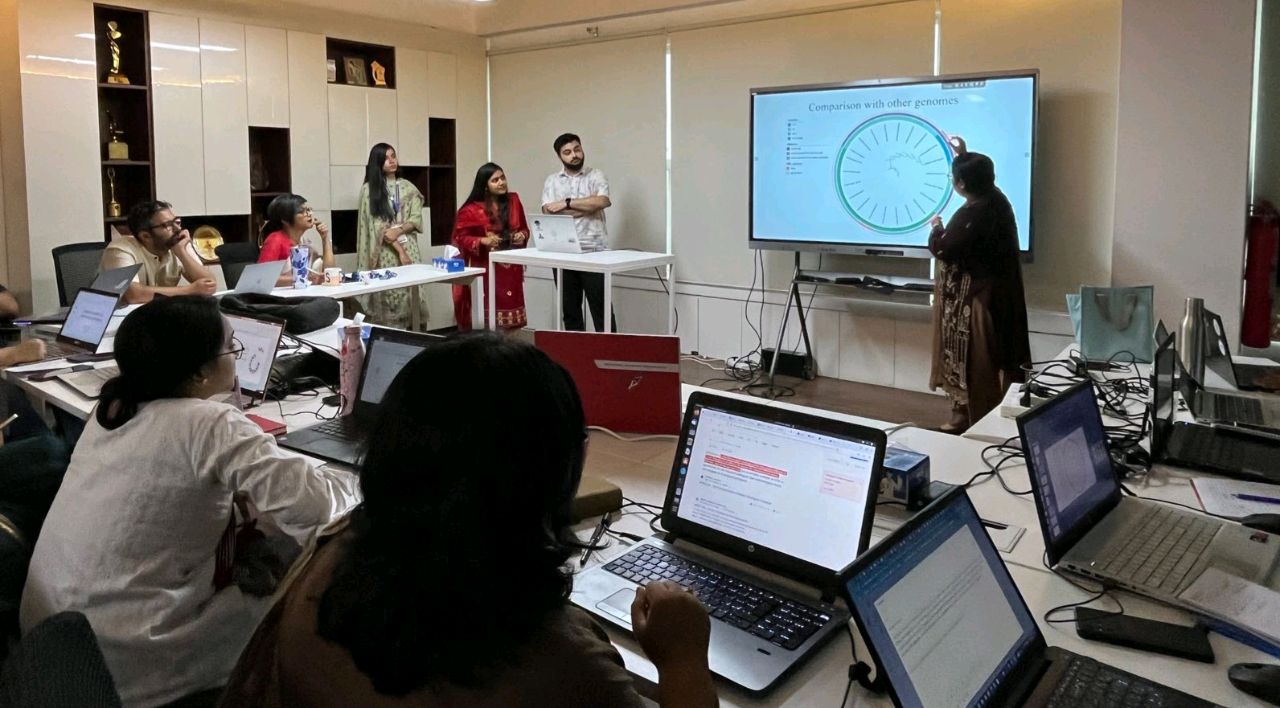
From September 10th to 14th, 2023, the Child Health Research Foundation (CHRF) hosted its second hands-on 40-hour workshop on bacterial genomics and antimicrobial resistance. This was our last bioinformatics workshop of 2023, and we had to increase our batch size from 12 to 19 due to the overwhelming number of outstanding applications. Our brilliant workshop attendees came from diverse backgrounds, from undergraduates to professors and even young professionals working in industry.
Additionally, our attendees represented 10 different universities! This included University of Dhaka, Bangabandhu Sheikh Mujibur Rahman Agricultural University, University Of Chittagong, Jagannath University, Jahangirnagar University, Mawlana Bhashani Science and Technology University, University of Rajshahi, International Islamic University, Independent University and University of Science and Technology Chittagong.
During this workshop, attendees learned how to analyze bacterial genomes for antimicrobial resistance and virulence factors, conduct comparative genomic analysis, and apply bacterial genomics to investigate clinical and scientific problems. Some even brought their own bacterial genomes for analysis! Finally, all participants presented their findings in groups to the instructors and received valuable feedback.
Here’s a comprehensive overview of what our attendees learned during the 5 days they spent with us:
Day 0: Participants came with their laptops to be set up with all the necessary software. The TAs of the course helped them with the process.
Day 1: Introduction to Bacterial Genomics and Bioinformatics
The workshop kicked off with an enlightening introduction to bacterial genomics and its wide-ranging applications by our Director and Senior Scientist, Dr. Senjuti Saha. Participants delved into the field of using genomics for public health. During the hands-on session, attendees learned the fundamentals of utilizing a Linux operating system, navigated basic Bash commands, and established the Anaconda environment for bioinformatic analysis.
Day 2: Bacterial Genome Analysis: From Sequence Data to Genomes
Participants started their day with a lecture by CHRF’s Scientist and Lead for Biochemistry, Dr. Yogesh Hooda, which covered the different sequencing methods used in bacterial genomics. The attendees also had the unique opportunity to get a tour of our genomics facility and see the sequencing machines for themselves. The day continued with hands-on sessions on accessing genomics databases, learning common file formats, performing quality control of sequence data, de novo genome assembly and annotation using command-line tools.
Day 3: Bacterial Genome Analysis for Antimicrobial Resistance
The third day included lectures on introduction to antimicrobial resistance and its molecular mechanisms by Dr. Senjuti Saha and Dr. Yogesh Hooda. During the hands-on sessions, participants were introduced to various tools for identification of resistance genes, mutations and virulence genes by CHRF’s Associate Scientist, Mr. Arif M Tanmoy. The significance of multi-locus sequence typing (MLST) in bacterial genomics was also introduced. All participants performed these analyses on bacterial isolates assigned to them, or on their own isolates if they brought their own data.
Day 4: Comparative Genomics and Phylogenetics
Comparative genomics and phylogenetic analysis took center stage on the fourth day of the workshop. The theoretical session included a lecture by Dr. Yogesh Hooda, followed by hands-on sessions on comparative analysis of bacterial genomes for identifying differences in virulence and antimicrobial resistance, as well as phylogenetic analysis, visualization, and annotation of phylogenetic trees generated.
Day 5: Application of Bacterial Genomics
The final day shed light on the practical application of bacterial genomics in the real world. Participants were exposed to Pathogenwatch, a platform used for tracking and analyzing pathogen genomes. The final lecture was from Dr. Senjuti Saha, who gave an overview of the ethical implications of genomics research and data sharing, particularly in the context of low and middle income countries (LMICs). The day concluded with engaging presentations by different groups, providing a platform for attendees to showcase their analytics and insights.
It is safe to say that our last bioinformatics workshop for 2023 was a huge success! We congratulate all our participants for completing this intensive course, and thank our esteemed courses instructors, Mr. Arif Tanmoy, Dr. Yogesh Hooda and Dr. Senjuti Saha. We would also like to highlight the TAs of the course, Mr. Anisur Rahman, Molecular Biologist, Mr. Preonath Shuvo, Bioinformatician, Ms. Esha Kazi, Assistant Molecular Biologist and Mr. Shafiul Alam, Training Officer, who spent hours setting up laptops and debugging any issues faced by the participants.
Armed with this knowledge, we believe our workshop graduates are well-prepared to contribute to embark on their own genomic investigations. We cannot wait to see what they will accomplish next!


